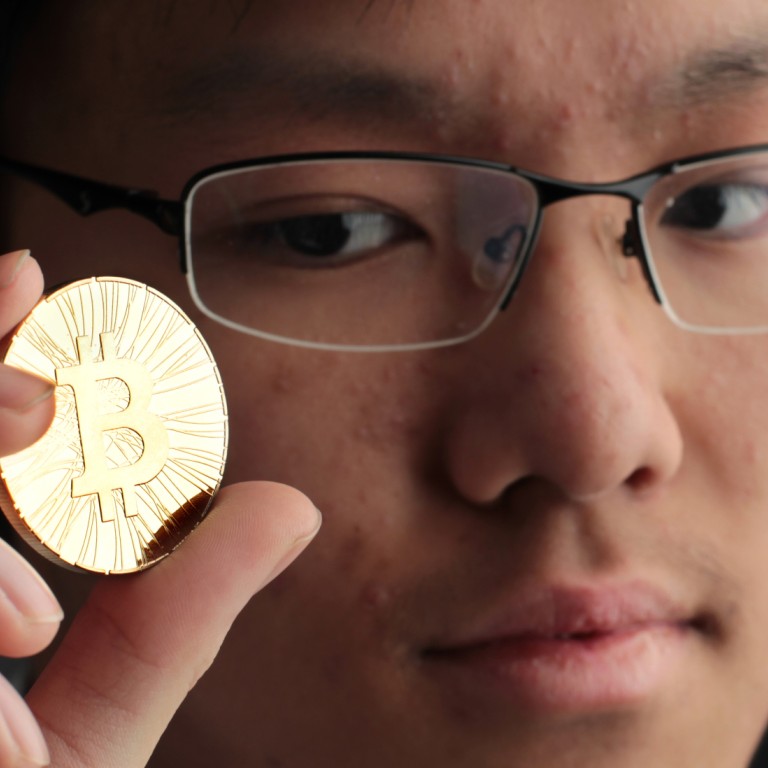
New | Bitcoin bubble won't last without Beijing's approval
Andy Xie believes the Chinese government's regulatory crackdown on the digital currency will starve this bubble of the credulous retail investors it needs to sustain itself and grow
Bitcoin is a Ponzi scheme masquerading as a futuristic currency. It was a small bubble until it found China last year. But when the Chinese government launched its crackdown, it was the beginning of the end. Its recent revival is merely the last gasp. No retail Ponzi scheme can last without the credulous and speculative masses in China.
The US Federal Reserve's super loose monetary policy has spawned a plethora of colourful bubbles, from modern paintings and fine wines to properties, bonds and stocks. Internet stocks, for example, are as big a bubble as in 2000.
Bitcoin was trying to join the internet bubble without much success. In the West, bubbles are driven by money managers. Bitcoin is too crazy for them.
But China is the land of retail bubbles. Puer tea and paintings of faces featuring big smiles are two recent examples. In the 1980s, old deutschmark notes from the hyperinflation era were doing the rounds in China. All those zeros got speculators excited. People didn't know the real deutschmark. Bitcoin works in China just like the old deutschmark did then. As long as you are ignorant, it promises untold millions.
China's M2 money supply has risen by more than 22 per cent per year on average since 1978. This is the root cause of why China's masses enjoy speculating so much and are prone to believing in fantastic get-rich-quick stories. Chinese people are big savers, but the monetary policy destroys the value of their savings. Rolling the dice seems more attractive than keeping money in the bank.
Bubbles, by definition, are zero-sum games. In China's case, the credulous masses have become easy prey. The government sector usually takes the lion's share. Some smart cookies take the crumbs. Because the population is so large, the crumbs have made some people very rich.
China's stock market, for example, was founded to raise money for state-owned enterprises in financial difficulty, not for making money for investors. The market works by creating speculative opportunities. When the money goes into the market, the state-owned enterprises take the lion's share by selling shares. The Ministry of Finance gets the second pick from imposing stamp duty on vast trading volumes.
When the money inflow exceeds the appetite of both the firms and the ministry, the market rises. People then play the game of who can catch the crumbs. Unfortunately, it is not a random game.
China's Growth Enterprise Market board doubled last year, while the main board fell slightly. Chances are, the small capitalisation stocks on the GEM board have dealers or price-makers. These are specialists who pump up a stock to attract a crowd. When enough people are in, they dump the stock and pocket enormous profits. These people are not considered villains; they are praised for keeping the game going. The losers are just considered unlucky.
Bitcoin caught fire in China because it has attracted retail punters and the dealers could smell a winner. The bitcoin market capitalisation was tiny, and perfect for the pump-and-dump strategy that China's dealers are used to. It surged 100 times last year before China's government cracked down. As its trading volume in China vanishes, so it will elsewhere.
Its recent price recovery is just a dead cat bounce. Lots of foreigners may be waiting for China's government to change its mind; 1.4 billion Chinese would then pump up the price to US$1 million per coin. But I'm afraid this dream will meet its death this year.
Retail bubbles in China are usually tolerated when they benefit the government. Today's property bubble is the best example. Some bubbles are just games among people who want to gamble. They serve to keep them entertained. When too many get hurt, the government can always force the winners to cough up some of the winnings to pacify the losers.
Bitcoin is a bubble that foreigners cooked up and, by all appearances, is designed to rob the credulous Chinese masses. When the bubble bursts, the Chinese government won't be able to arrest these foreigners and get the money back. The bubble is not under Chinese government control. Hence, it cannot be tolerated.
Maybe Hong Kong is still open for business. There is talk of a bitcoin ATM. It is really a machine for trading bitcoin into real money. Calling it an ATM is to put on a charade that bitcoin is real money. Hong Kong is always ready to serve as the conduit for clever scams on the way to the mainland. But, without bitcoin actually making it into mainland China, Hong Kong cannot hold it up.
When the price is holding but trading volume is gone, a bubble has no juice left. Those who hold the chips are looking into the rear-view mirror and dreaming that the game will return. Time will kill this fantasy. When there are only people leaving the casino, with no one entering, it's bedtime.

